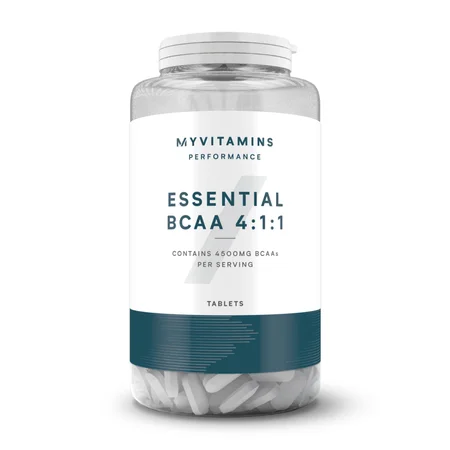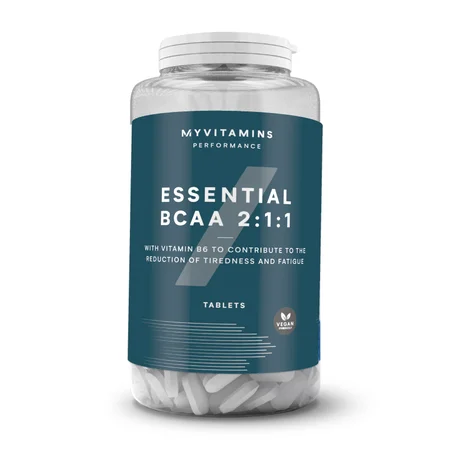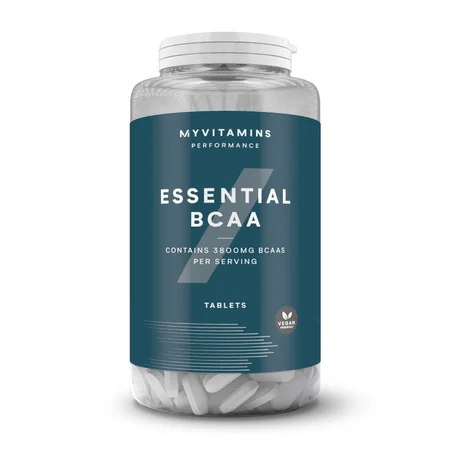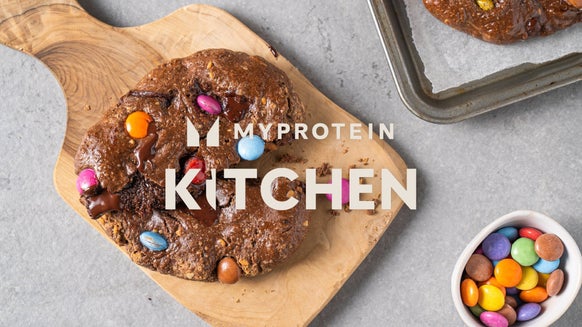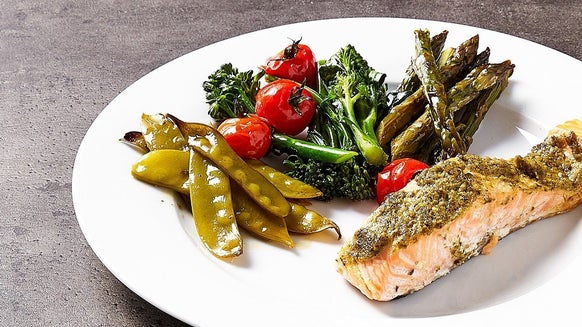9 Foods High In Leucine
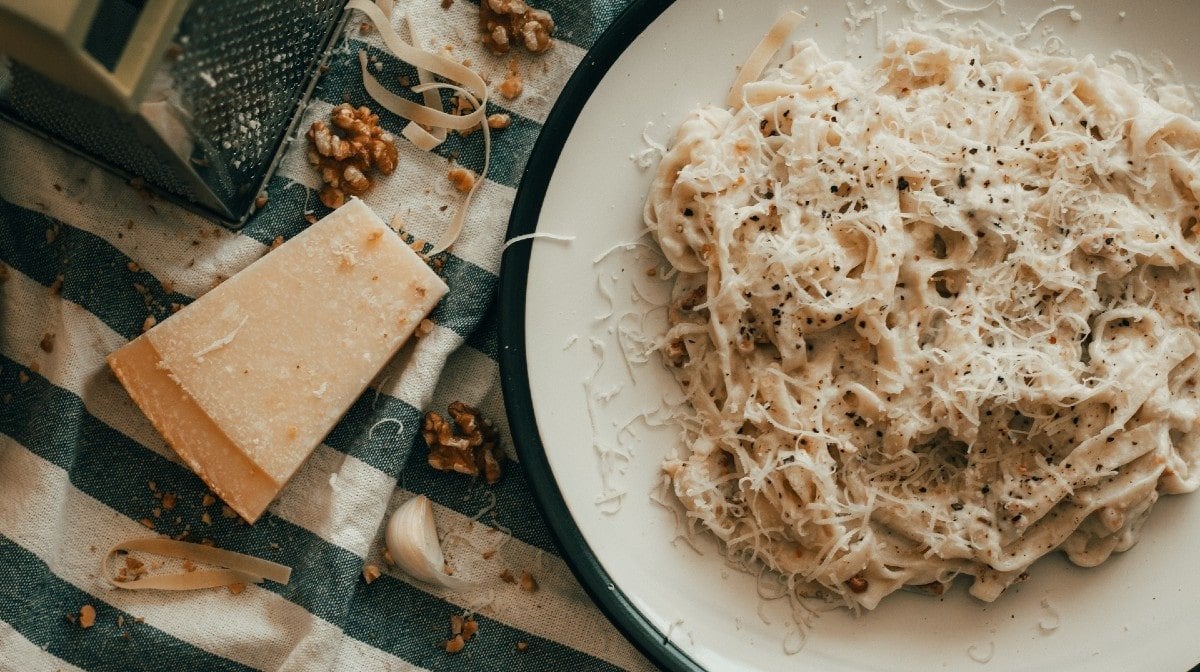
What is Leucine?
Amino acids are the building blocks of protein. They’re important for a variety of functions in the body, including building and repairing muscle. One of these amino acids is Leucine, which sits within the group of branched-chain amino acids (BCAA) alongside valine and isoleucine.
Leucine is key for repairing and building muscle as it tells the body when to start the process of muscle protein synthesis.1 Not all protein sources contain the same amount of leucine or other essential amino acids, so consuming protein sources high in leucine is the best option for building muscle and enhancing recovery after exercise.2 It’s recommended you consume roughly 3g of leucine at each meal for optimal muscle protein synthesis.3

9 Foods High in Leucine
1. Chicken breast
- 2.5g Leucine
- 32g Protein
- 145 kcals.
At only 140kcals per 100g chicken is a lean source of protein containing 2.5g of leucine. Chicken is also high in essential amino acids and particularly high in lysine. Chicken is also a rich source of niacin and vitamin B6.
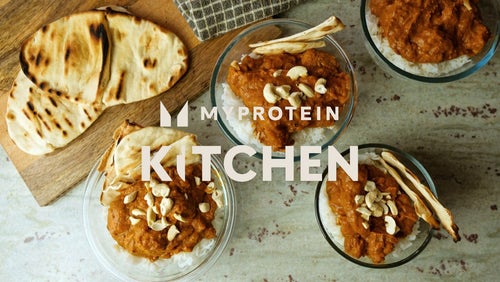
30-Minute Chicken Tikka Masala Meal Prep
Sort your lunches for the week in just half an hour.
2. Turkey
- 2g Leucine
- 34g Protein
- 147 kcals
Like chicken, turkey is a lean source of protein with a high percentage of essential amino acids. It’s also a good source of B vitamins, selenium and phosphorus.

Turkey & Avocado Quesadillas | Left-Over Turkey Recipe Ideas
Don’t let those leftovers go to waste — give your Christmas turkey a Mexican makeover.
3. Beef
- 30g Protein
- 2.6g Leucine
- 122 kcals
Beef is an excellent source of the branched-chain amino acids: leucine (2.6g), isoleucine (1.4g) and valine (1.5g). It’s high in glycine, arginine and methionine, which are needed to synthesise creatine in the body. Beef is also rich in B12 and iron, which both play a key role in energy production.4
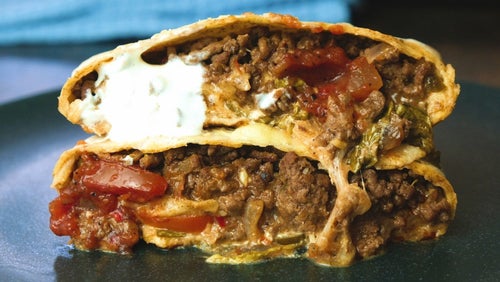
Homemade Beef Crunch Wraps | Fakeaway Favourites
How to get your fix of that Taco Bell classic.
4. Parmesan cheese
- 35.8g Protein
- 3.4g Leucine
- 392 kcals
Parmesan is high in both protein and leucine. It’s also high in calories, fat and salt, portion sizes should be controlled in order to fit into a healthy, balanced eating plan. As with other dairy products, parmesan is a good source of calcium which plays a number of key roles in maintaining healthy teeth and bones.5
5. Tuna
- 24g Protein
- 2g Leucine
- 99 kcals
Tuna is lean protein source containing 24g of protein for just 99kcals in 100g serving, and an excellent source of B12, B3 and selenium. Top tip: it’s also a source of vitamin D, which can be tricky to get from other food sources.
6. Pine nuts
- 14g Protein
- 2g Leucine
- 693 kcals
While pine nuts are high in leucine per 100g, portion sizes should be controlled due to their high saturated fat and calorie content. A typical serving size is approximately 25g (containing 3.4g of protein and 173kcals.) Pine nuts are a good source of vitamin E, which is important for maintaining healthy eyes, skin and strengthening the immune system.8
7. Dried Broad Beans (Fava beans)
- 26g Protein
- 2g Leucine
- 343 kcals
Dried broad beans are a great vegetarian/vegan-friendly protein source containing a high amount of fibre (34g per 100g).
8. Dried Peas (Split peas)
- 22g Protein
- 1.4 Leucine
- 324 kcals
Split peas are another good source of fibre, containing 13g in every 100g. They’re also rich in magnesium, potassium, iron, zinc, manganese and B vitamins.
9. Salmon
- 23g Protein
- 2g Leucine
- 205 kcals
Salmon is an oily fish rich in omega-3 – a healthy fat source. Omega-3 has been associated with a wide range of health benefits such as heart health, mood and memory.6 Salmon is a good source of selenium, phosphorus, potassium and b-vitamins. Like tuna, salmon is also a rare dietary source of vitamin D.

Take home message
Leucine is a branch-chain amino acid that's crucial to your diet due to its impact on muscle protein synthesis. You can supplement leucine to boost the anabolic potential of food sources low in essential amino acids. There are also loads of great high-leucine foods you can get it from - meat and fish are food sources both high in leucine, while cheese, nuts and beans are great vegetarian sources. You can also supplement leucine which can boost the anabolic potential of food sources low in essential amino acids.
READ THESE NEXT:
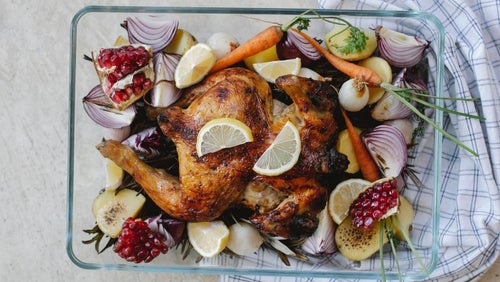
Climatarians 'Don't Have To Go Vegan' | Science Fact Or Fiction?
But chocolate might be off the menu.

Liam is a certified sport nutritionist with the International Society of Sport Nutrition and is enrolled on the British Dietetics Association’s Sport and Exercise Nutrition register. He has a Bachelor’s of Science in Sport and Exercise Science and is graduate of the ISSN Diploma in Applied Sport and Exercise Nutrition.
Liam is an experienced personal trainer, helping clients reach their health and fitness goals with practical, evidence informed exercise and nutrition advice. In his spare time Liam has competed in numerous powerlifting competitions and enjoys hill walking, football and expanding his recipe repertoire in the kitchen.Find out more about Liam's experience here.
